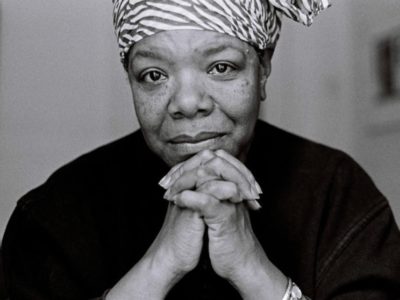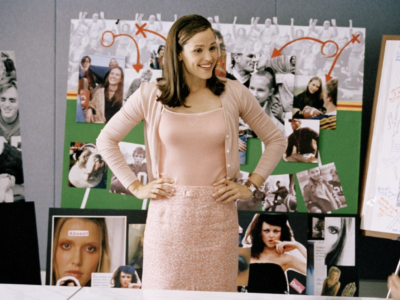Black voices seem to remain silenced and stifled throughout history. To this day the American school system often neglects to include literature by Black authors in its curriculum. This perpetuates a continual whitewashing of our history and misrepresentation of marginalized people. In the wake of these protests, students everywhere continuously make efforts to educate themselves on current unjust policies and moments in history. Take some time to learn about some of the most influential Black authors of the past and present, whose words helped shape a brighter future for Black Americans and the U.S. in general. In the wake of these current protests, more and more Americans seek to be educated with regard to the injustices and treatment of Black lives.
Get your summer reading list here and read on to learn how these incredible Black authors changed the world.
1. Toni Morrison

“Freeing yourself was one thing; claiming ownership of that freed self was another.” —Beloved by Toni Morrison
Chloe Anthony Wofford Morrison, known as Toni Morrison, stands as a Nobel Prize and Pulitzer Prize-winning novelist. Considered the voice of African American women by many, she crafted intricate stories that capture the dark struggle of slavery and racial discrimination in America. Her first novel, “The Bluest Eye,” tells the story of a young African American girl named Pecola who grows up during the years following the Great Depression. Because of her dark skin, Pecola is consistently regarded as ugly and this fuels her desire for blue eyes, a common symbol of whiteness.
Another one of her works, “Beloved,” published in 1987, received the Morrison the Pulitzer Prize for Fiction. Set after the Civil War, the book and movie adaptation of the same name were inspired by the tragic events of Margaret Garner’s life. Garner attempted to escape slavery 1856 by crossing the Ohio River from Kentucky to Ohio, a free state. Unfortunately, she got captured and rather than allowing her child to grow up a slave, she decided to kill her. The often-surreal novel discusses the pain of a mother haunted by that fatal choice that encapsulates the phrase, “give me freedom or give me death.” Toni Morrison’s emotional topics and poignant storytelling continue to stand out and draw readers to take a closer look at history through the eyes of African Americans.
2. Octavia E. Butler
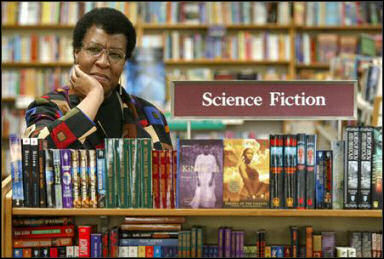
“I’m a pessimist if I’m not careful, a feminist, a Black… an oil-and-water combination of ambition, laziness, insecurity, certainty, and drive.” –Octavia E. Butler
As an American science fiction author and recipient of both the Hugo and Nebula awards, Octavia Butler’s books enrich the mind like no other. From an early age, her passion for writing grew strong. Despite her mother’s wishes for her to become a secretary, Butler continued to work multiple less demanding temporary jobs in order to wake up at 3 a.m. to write. She styled her stories after white-and-male-dominated science fiction at the time and through years and years of schooling and attending multiple workshops, she found her own voice.
Butler went on to write 16 incredible books with her most popular book, “Kindred,” receiving critical acclaim in 1979. “Kindred” follows a young African American woman writer in 1976 Los Angeles, who finds herself pulled back and forth through time to a pre-Civil War Maryland plantation where she meets her ancestors. Throughout “Kindred,” Butler provides an interesting dynamic that explores the dilemmas of antebellum slavery through an awareness of a late 20th-century Black woman.
In 1995, Butler became the first science fiction writer to receive a MacArthur Fellowship and after writing her Parable series which she claimed both overwhelmed and depressed her, she published her last book “Fledgling” in 2005, a year before her passing. Ultimately, Butler paved the way for many new science fiction voices to emerge in a white-dominated genre.
3. Maya Angelou

“The Black female is assaulted in her tender years by all those common forces of nature at the same time that she is caught in the tripartite crossfire of masculine prejudice, white illogical hate and Black lack of power. The fact that the adult American Negro female emerges a formidable character is often met with amazement, distaste and even belligerence. It is seldom accepted as an inevitable outcome of the struggle won by survivors and deserves respect if not enthusiastic acceptance.” —I Know Why the Caged Bird Sings by Maya Angelou
Born Marguerite Annie Johnson, known as Maya Angelou, became one of the most recognized American poets. Throughout her life, she published seven autobiographies, three books of essays and several books of poetry. Additionally, Angelou contributed to numerous plays, movies and television shows spanning over 50 years. Her best-known works include seven autobiographies that focus on her childhood and early adult experiences. “[‘I Know Why the Caged Bird Sings’] was super emotional and just a beautiful book all around. I remember I had to read it in one of English classes and it was one of those books I finished way ahead of the class because I couldn’t put it down,” University of Georgia student Elizabeth Johnson said. Angelou’s “I Know Why the Caged Bird Sings,” published in 1969, became the first in a seven-volume series and her most popular book. Described as a coming of age story, it details snapshots of Maya Angelou’s life up to the age of 17. Moreover, it illustrates how the strength of a character and a love for reading can help overcome racism and trauma. Other works of Angelou include “And Still I Rise,” “On the Pulse of Morning” and “Life Doesn’t Frighten Me.” Angelou’s artistic voice shines through in her work and captures the truth of her life which resonates with her readers and encourages strength, resilience and love.
4. James Baldwin

“It is certain, in any case, that ignorance, allied with power, is the most ferocious enemy justice can have.” –James Baldwin
James Baldwin wrote novels, plays, essays and poetry which explore not only the intricacies of racial issues but sexuality as well. As an activist for the Gay Liberation Movement and the Civil Rights Movement, most of the protagonists represented were African American and gay or bisexual. “My favorite piece by James Baldwin is ‘Sonny’s Blues.’ He articulates these feelings in such a strong and passionate way that the emotions are passed onto the reader and forces them to connect on a deeper level,” Florida International University freshman Victoria Fernandez said. At the age of 24, Baldwin left the United States to escape the racial prejudices and lived in Paris.
In Paris, Baldwin wrote “Go Tell It on the Mountain,” a novel written from the heart about the Black struggle in America which quickly became an American classic. In 1956, he wrote “Giovanni’s Room,” which brought to light the issues of race and homosexuality at a time when it stood as a taboo, helping create his legacy as an American hero. Because of him, later generations of artists felt free to speak on the gay experience in Black America.
5. Langston Hughes
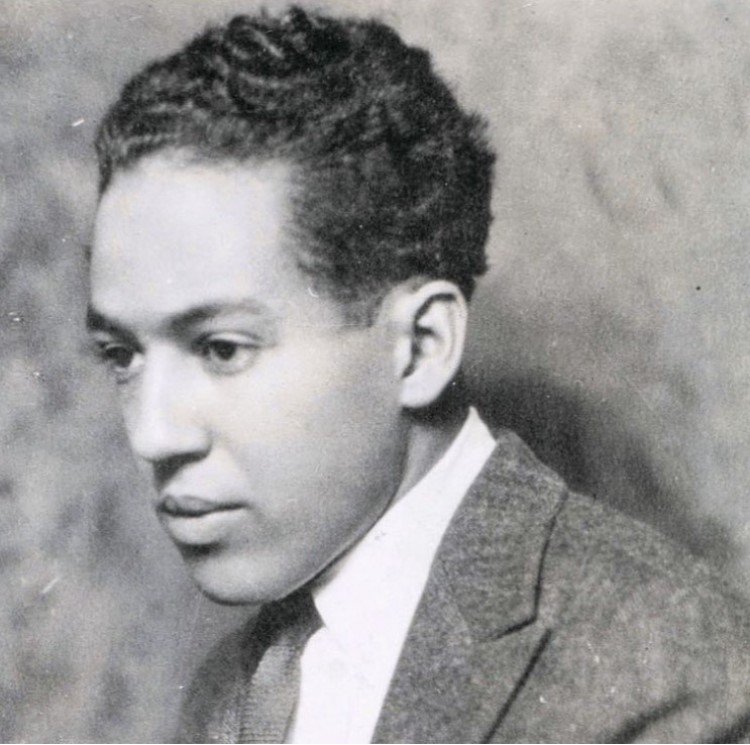
“I’ve known rivers: I’ve known rivers ancient as the world and older than the flow of human blood in human veins. My soul has grown deep like the rivers.” —The Negro Speaks of Rivers by Langston Hughes
Langston Hughes, best known as the leader of the Harlem Renaissance, created a new literary art form called jazz poetry, meaning poetry that “demonstrates jazz-like rhythm or the feel of improvisation.” Hughes began his career in 1921 with a piece in, “The Crisis,” the official magazine of the National Association for the Advancement of Colored People (NAACP). “The Negro Speaks of Rivers,” written at the age of 17, became Hughes’s signature poem. In the poem, Hughes expresses his own feeling on having a Midwestern identity, yet its narrator possesses a knowledge and soul as ancient as the rivers of which he speaks. Hughes’ deeply emotional and romantic language carries the power of a much older writer in a contemplative moment in time.
Along with poetry, Hughes became a novelist, playwright and columnist and used his platform for social activism. Using his own unique poetic style, Hughes showed his commitment to Black themes and heritage with “The Weary Blues,” a collection of poetry he published at just 24 years old. “‘I, too’ looks not just into the importance of the black community to American society, but how the black community is a part of American society,” Marymount Manhattan College student Jania Gomez said. “Langston Hughes shows how even when America tries to hide its black community’s strength, it cannot” Through his use of slang, religious context and music Hughes used his voice to educate the world about African American lifestyles, especially in the lower social-economic strata. For this reason, we remember his work and his contributions to a more real and raw depiction of black lives in America.
6. Zora Neale Hurston
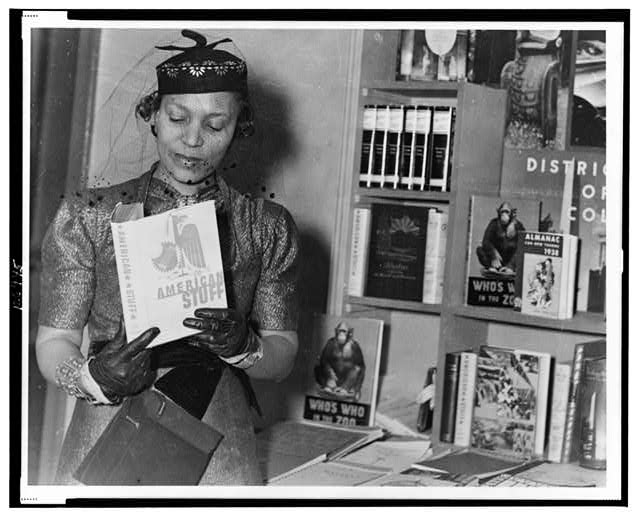
“I have been in Sorrow’s kitchen and licked out all the pots. Then I have stood on the peaky mountain wrapped in rainbows, with a harp and sword in my hands.” –Zora Neale Hurston
Hurston headed to New York City in 1925 just as the Harlem Renaissance started to gain momentum. This artistic, intellectual and social movement – known as the “New Negro Movement” at the time — centered in Harlem Manhattan during the 1920s. At the height of the 1930’s she became a preeminent Black female writer and she often held social gatherings with other well-known artists like Langston Hughes. Huston wrote over 50 published novels, short stories, plays and essays, but her most famous work by far was “Their Eyes Were Watching God.” Published in 1937, the novel follows the early life of an African American woman in southern Florida in the early 20th century and explores the difficult topics of rape, race and gender roles.
Hurston’s career suffered much toward the end of her life. In fact, after she died in 1960, her stories and books went out of print. Thankfully, years later, Alice Walker (author of “The Color Purple”) revived America’s interest in Hurston in her essay, “In Search of Zora Neale Hurston,” published in 1975. Walker claims that Hurston’s work set a foundation in the reality of African Americans because she fell wildly in love with people of color and wanted them to see the beauty in themselves. This brought Hurston back to the attention of a new generation of readers and gave her the legacy she so rightfully deserved.
7. Alex Haley
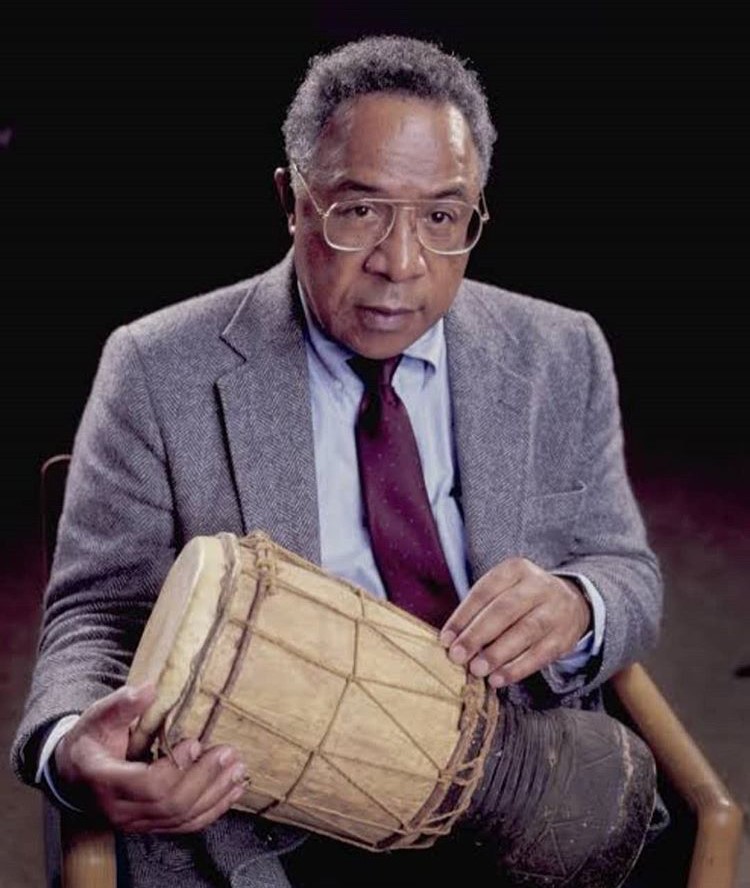
“In all of us there is a hunger, marrow-deep, to know our heritage- to know who we are and where we have come from. Without this enriching knowledge, there is a hollow yearning. No matter what our attainments in life, there is still a vacuum, an emptiness, and the most disquieting loneliness.” –Alex Haley
Alex Haley’s writing inspired a nationwide interest in genealogy and Black history. Best known for “The Autobiography of Malcolm X: As told to Alex Haley,” published in 1965, Haley took the world by storm. The book, based on interviews conducted by Haley, took place between 1963 and Malcolm X’s assassination in 1965. While some regard Haley as a ghostwriter, modern scholars view him as an essential collaborator. He intentionally wrote the story in a muted authorial voice to create the effect of Malcolm X speaking directly to the readers.
His Pulitzer Prize-winning book, “Roots: The Saga of an American Family,” published in 1976, started as an ambitious project that Haley took under to trace his ancestor’s journey from Africa to America as slaves and tell the story of their rise to freedom. “Roots,” created after a decade of research and travel to West Africa, became a national sensation. It eventually became a television miniseries that shattered television viewing records when 130 million viewers tuned in. His out of the box thinking and passion for expression led him to open the world’s eyes to the injustice of our history and change the hearts of many.
8. W.E.B Du Bois
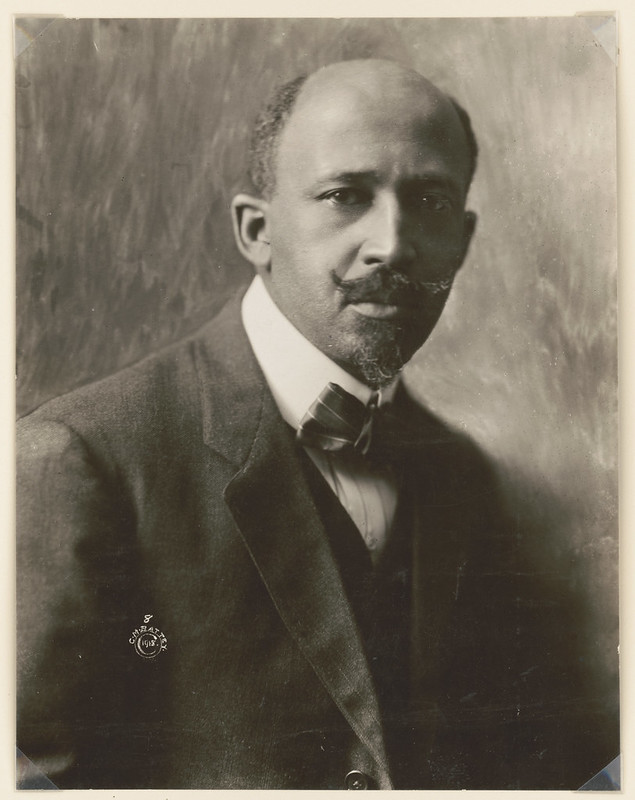
“Believe in life! Always human beings will live and progress to greater, broader, and fuller life.” –W.E.B. Du Bois
We remember W.E.B Du Bois as an activist, Pan-Africanist, sociologist, educator, historian and writer. He grew up in Massachusetts as part of the Black elite and issues of racial prejudice did not come to his attention until he began attending University in Tennessee. He studied the struggles and triumphs of Black America and wrote, “The Suppression of the African Slave-Trade to the United States of America,” as his thesis. This book became one of the earliest scientific studies on Black communities and it still remains an authoritative work on the subject. After the horrific lynching of Sam Hose in 1899, Du Bois began writing “The Souls of Black Folk,” published in 1903. The book contains several essays on race drawn from his own experiences, and to this day, it holds an important place in social science as one of the early works in the field of sociology.
Aside from this, Du Bois coined the term “double consciousness,” as a way to explain how in racist societies, black people must keep two fields of vision at all time: they must remain conscious of how they view themselves as well as conscious of how the world views them. Du Bois went on to establish the NAACP when the nation became overtaken by Jim Crow laws and political disenfranchisement. He continued to write articles, essays and books in an attempt to educate and change the nation. Clearly, W.E.B Du Bois’ contribution to the advancement of African American’s can feel relevant today, as he inspired putting emphasis on educating and changing the nation in order to tackle racial injustice.
9. Richard Wright
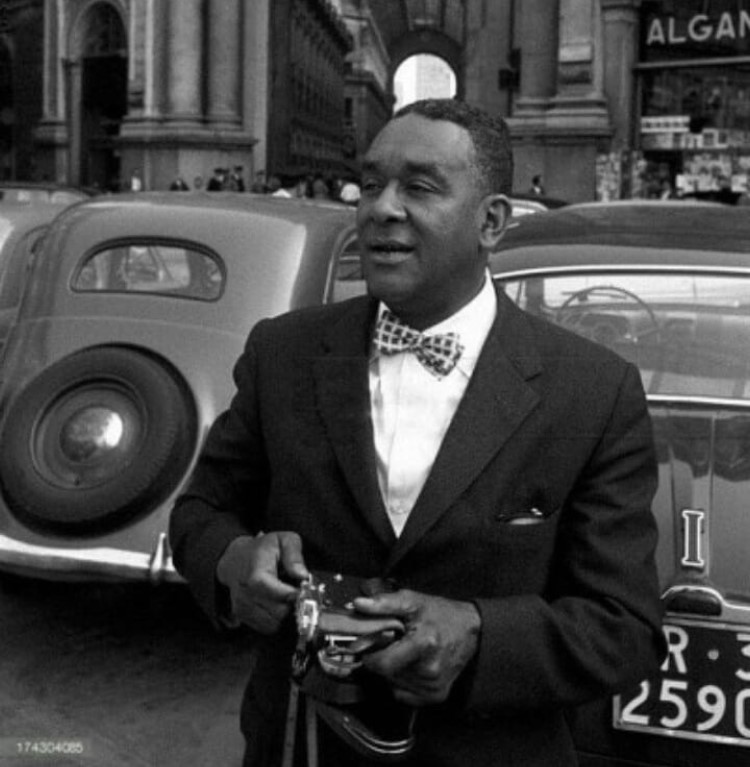
“They hate because they fear, and they fear because they feel that the deepest feelings of their lives are being assaulted and outraged. And they do not know why; they are powerless pawns in a blind play of social forces.” —Native Son by Richard Wright
Richard Wright’s dreams of writing took off when he began working through the Federal Writers Project and received critical acclamation for a collection of short stories called “Uncle Tom’s Children.” He furthered his fame into 1940 for the publication of “Native Son,” which became the first book by an African American writer selected by the Book-of-the-Month Club. “Native Son,” tells the story of 20-year-old Bigger Thomas, a black teenager living the poverty-stricken south side of Chicago in the 1930s. Wright portrays systemic causation behind the crimes committed by his main character that offers a bigger picture of racial disparity and prejudice in the nation, still rings true to this day.
Through his novel, “Black Boy,” Wright details a personal account of growing up in the South and eventually moving to Chicago where he became a writer and joined the Communist Party. While the book achieved great success, Wright became disillusioned in White America and the Communist Party. He decided to spend the rest of his life in Paris as an expatriate and continued to write novels that spoke to African American and Black issues. Today, we remember his bravery for expressing the hardships of African Americans through his lifelike characters.
10. Chimamanda N’gozi Adichie
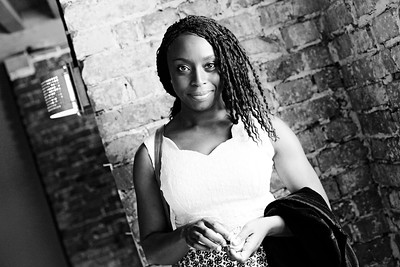
“Culture does not make people. People make culture. If it is true that the full humanity of women is not our culture, then we can and must make it our culture.” —We Should All Be Feminists by Chimamanda Adichie
Last but definitely not least we recognize Chimamanda N’gozi Adichie, a modern activist for race, identity and feminist issues that we should all get behind. Born in 1977 in Nigeria, Adichie grew up during the Nigerian Civil War. At 19-years-old, she moved to the United States to study and claims that moving to America made a big impact on her identity. Her books reflect on that journey, offering a refreshing new perspective to the way we think about race. In the novel “Americanah,” Adichie explains these feelings: “I came from a country where race was not an issue; I did not think of myself as black and I only became black when I came to America.” One of her most notable books includes “Half of a Yellow Sun” which discusses events of the Biafran War in Nigeria from three different character perspectives. The book explores themes of politics and identity in post-colonial Africa while showing the intermingling issues of rule of Western journalism, war and female empowerment, a topic very important to Adichie.
“We Should All Be Feminists,” published in 2014 and adapted from her 2012 TEDx talk of the same name, ultimately reignited the feminist movement. The audio from this talk even made its way in Beyoncé’s 2013 song “***Flawless.” At the foreground of Beyoncé’s angelic vocals, we hear Adichie’s infamous words, “We teach girls to shrink themselves, to make themselves smaller. We say to girls, you can have ambition, but not too much. You should aim to be successful, but not too successful. Otherwise, you would threaten the man.” Adichie continues to stand as an outspoken political activist and looks forward to an entire career of book writing ahead of her so make sure to keep an eye out for her.

